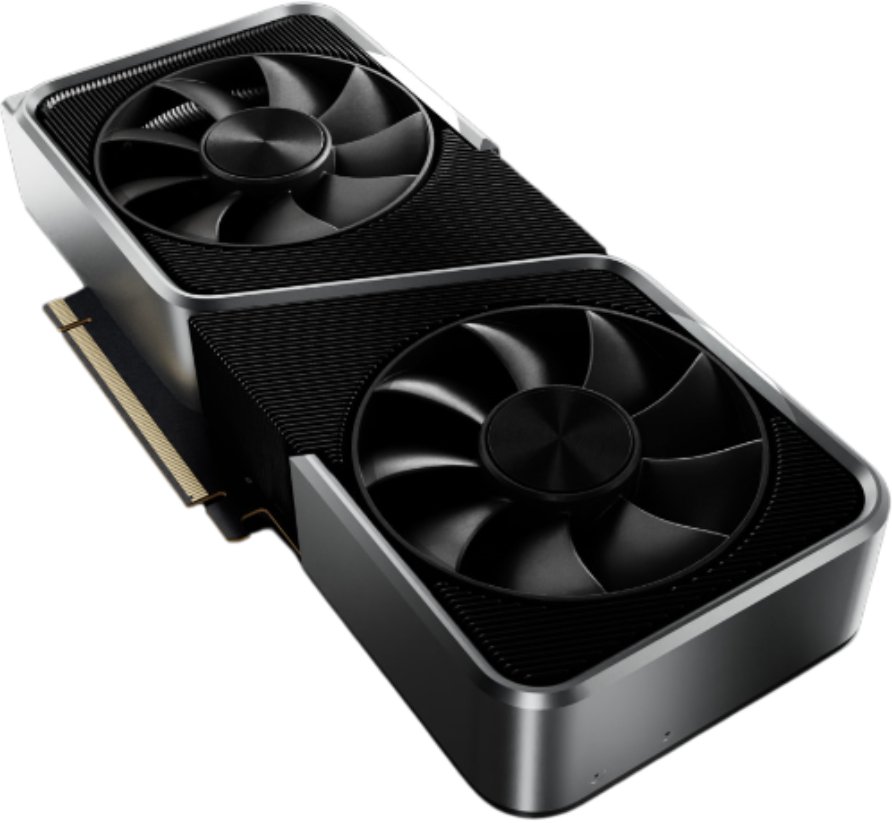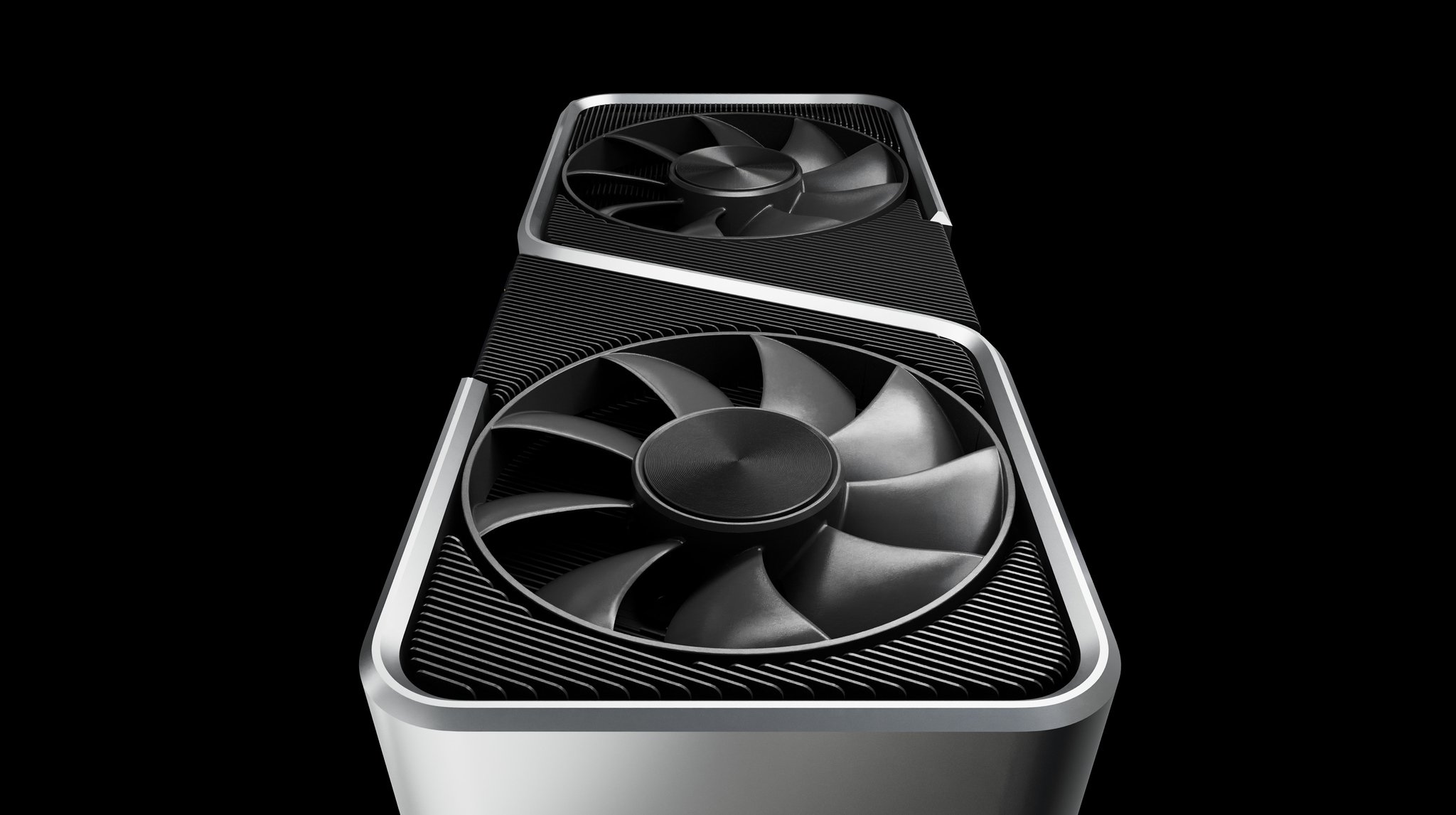New budget champion
NVIDIA GeForce RTX 3060
Pros
- 12 GB GDDR6 memory
- Solid 1080p gaming performance
- HDMI 2.1
Cons
- Needs more power than the RTX 2060
- Limited availability
The NVIDIA GeForce RTX 3060 is the new go-to budget graphics card for those looking for a decent 1080p performer. It is capable of hitting acceptable performance at 1080, and can do some 1440p, and outperforms the RTX 2060 by a decent margin. However, it fails to offer as great a price-to-performance ratio as the 3060 Ti and 3070, and is also hard to find at a fair price.
Last-gen RTX entry point
NVIDIA GeForce RTX 2060
Pros
- Holds up well for 1080p gaming
- Lower power consumption
Cons
- Entry-level ray-tracing performance
- Can't do very well at 1440p
The NVIDIA GeForce RTX 2060 is the predecessor to the RTX 3060. The RTX 2060 was the entry point for the RTX 20 series of GPUs, and offered an entry-level peek into ray tracing. It certainly holds up for that it was. It's a decent 1080p performer, making it a solid GPU to own right now.
The NVIDIA GeForce RTX 3060 is the new entry point for the RTX 30 series of GPUs. If you're looking for a ray tracing GPU, the RTX 3060 is the cheapest one you can buy. It starts at a slightly lower price than the RTX 2060 did, but despite having better performance with a lower starting price, it does not make for a significant upgrade if you're coming for the RTX 2060. Let's take a look at the reasons why.
NVIDIA GeForce RTX 3060 vs. RTX 2060 specs
NVIDIA GeForce RTX 3060 is a step up from the hardware of the RTX 2060, but not in all aspects. With the RTX 3060, you're getting the new Ampere GA106 GPU, which uses Samsung's 8nm process. The RTX 2060, on the other hand, used the 12nm TSMC process. This means a jump in the transistor count. The RTX 2060 packed in 10.8 billion transistors, while the RTX 3060 gets 13.25 billion transistors. Let's take a closer look at the specifications of the two cards.
| Category | NVIDIA GeForce RTX 3060 | NVIDIA GeForce RTX 2060 |
|---|---|---|
| Shader (CUDA) Cores | 3584 | 1920 |
| Core Clock | 1320MHz | 1365MHz |
| Boost Clock | 1780MHz | 1680MHz |
| Memory | 12GB GDDR6 192-bit bus width |
6 GB GDDR6 192-bit bus width |
| Memory Clock | 15Gbps | 14Gbps |
| Memory Bandwidth | 360GB/s | 336GB/s |
| RT Cores | 28 | 30 |
| Tensor Cores | 112 | 240 |
| Transistors | 13.25 billion | 10.8 billion |
| Node | Samsung 8nm | TSMC 12nm FFN |
| Architecture | Ampere | Turing |
| TDP | 170W | 160 W |
| Ports | 1 x HDMI 2.1 3 x DisplayPort 1.4a |
1 x HDMI 2.0b 2 x DisplayPort 1.4 1 x DVI 1 x USB C |
| Power Connector | 1 x 8 pin | 1 x 8 pin |
Note: Some specifications of the RTX 3060 and RTX 2060, like the ports, may vary as per AIB models.
The tricky thing here is that while there's a transistor count jump, unlike most other successor cards, the RTX 3060 seems to have a lower ray tracing core count than its predecessor. The memory bandwidth also doesn't seem to have made a significant jump. This means that the performance boost isn't quite pronounced as the other successor comparisons have shown us. The jump from the RTX 2060 to RTX 3060 thus makes less sense than upgrading to a slightly higher-tier card. Let's take a look at the real-world performance.
NVIDIA GeForce RTX 3060 vs. RTX 2060 real-world performance
The NVIDIA GeForce RTX 3060 doesn't have a Founders Edition card. The real world performance comparisons thus will vary as per the configuration of AIB models, but the difference will not be too much. Here are some FPS figure comparisons between the Palit RTX 3060 Dual and the KFA2 RTX 2060 Plus, courtesy of BENCHMARKS FOR GAMERS.
| Game | RTX 3060 (avg. FPS, 1080p) | RTX 2060 (avg. FPS, 1080p) | RTX 3060 (avg. FPS, 1440p) | RTX 2060 (avg. FPS, 1440p) |
|---|---|---|---|---|
| Cyberpunk 2077 (RTX On) | 48 | 34 | 33 | 23 |
| Doom Eternal | 213 | 168 | 147 | 111 |
| Microsoft Flight Simulator | 48 | 40 | 36 | 28 |
| Call of Duty: Black Ops Cold War | 70 | 58 | 53 | 42 |
| Red Dead Redemption 2 | 71 | 59 | 54 | 44 |
| Assassin's Creed: Valhalla | 63 | 50 | 50 | 39 |
| Horizon Zero Dawn | 85 | 72 | 60 | 49 |
The RTX 3060 is a decent card for a new RTX 30 GPU, especially if you want to save as many dollars as possible, on paper at least! If you want to enter the RTX arena at the lowest point possible, the RTX 3060 could be your card, but it doesn't make sense as an upgrade from the RTX 2060.
Looking at the performance differences, the difference is not pronounced enough to warrant an upgrade. You do see some performance boost here, but it's barely something that should make you want to sell your RTX 2060 and go hunting for an RTX 3060. Both the cards are 1080p cards, with the RTX 3060 giving a slight edge at 1440p.
The RTX 2060 still holds up well for a 1080p GPU that can do some ray tracing, so much so that NVIDIA is actually bringing it back into production to fill out the lower mid-range of GPUs, which is suffering due to the stock shortages. This is another indicator that the card is still relevant when it comes to decent mid-range performance.
So should you upgrade to the NVIDIA GeForce RTX 3070 from RTX 2070?
No. The RTX 3060 is a good card by itself, but it's not a worthy upgrade from the RTX 2060. The RTX 3060 is also very hard to get your hands on right now, due to supply issues, just like any of the best graphics cards out there right now.
The other thing to consider here is that even if you were to find an RTX 3060 in stock, you would have to spend so much for an AIB card that you could just get an RTX 3060 Ti, or even an RTX 3070. Given the amount of effort needed to track restocks and be able to grab an RTX 30 GPU at an acceptable price, the RTX 3060 just doesn't seem like a worthy upgrade.
The performance jump from the RTX 2060 to the RTX 3060 isn't worth the upgrade, but if you badly want an upgrade to the RTX 2060, you should be looking at the RTX 3070 instead. In our NVIDIA RTX 3070 review, we called it the perfect 1440p card, which makes it an ideal upgrade from the RTX 2060. If you're set on a 3060 Series card, you might want to pick the 3060 Ti instead, which is a better upgrade by all means.
All of this is provided you can grab an NVIDIA GeForce RTX GPU at an acceptable price. If you're still on 1080p and not planning a major upgrade, you should be holding on to that RTX 2060 until the demand and supply situation for new silicon gets sorted.
RTX 30 budget pick
NVIDIA GeForce RTX 3060
Decent entry into the world of ray tracing
The NVIDIA GeForce RTX 3060 is the cheapest RTX 30 graphics card you can buy right now, and it does make a decent value proposition. However, it isn't nearly as good of a value as the RTX 3060 Ti or the RTX 3070, nor does it offer enough performance jump from the RTX 2060 to be a recommended upgrade.
Last-gen budget RTX
NVIDIA GeForce RTX 2060
Holds up well
The NVIDIA GeForce RTX 2060 is the last-gen entry-level RTX card, and while it's no miracle-worker, it holds up well. It does an okay job at 1080p, and gives a peek into the ray tracing goodness. As such, it's not due for such a small upgrade as the RTX 3060, and worth owning right now, barring a big planned system upgrade.




No comments: